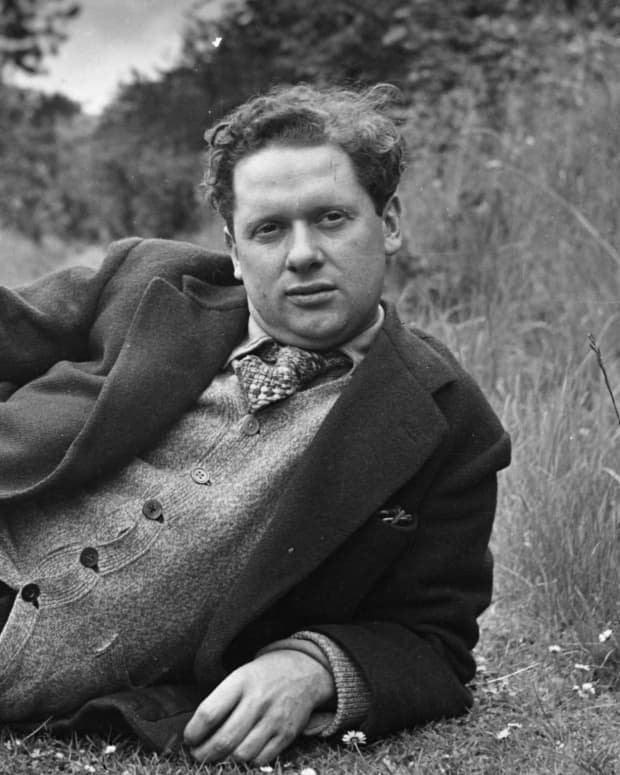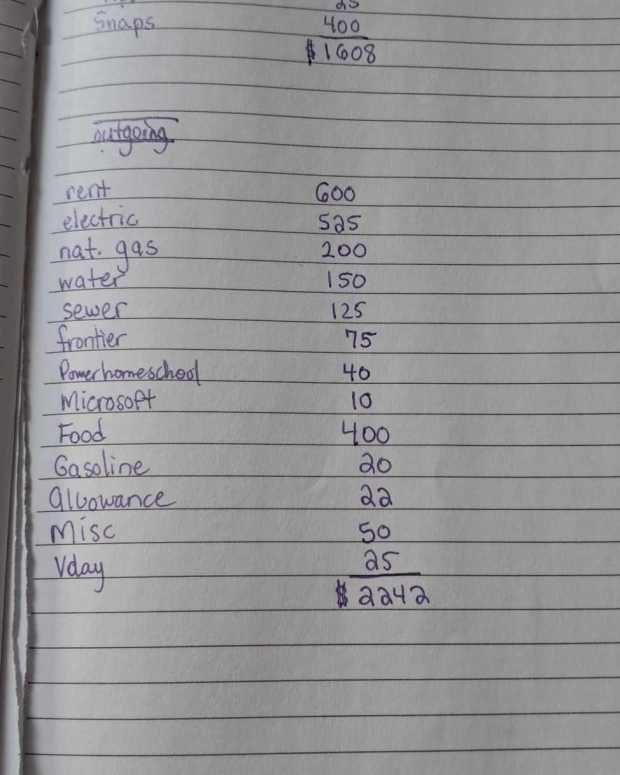Making New Year's Resolutions: SMART and Reward Systems
How to Make New Year's Resolutions Work
For many of us, the new year seems like a wonderful opportunity for a fresh start. It's an encouraging time to end destructive behaviors and start helpful ones, even if we've failed to do this in the past.
However, according to a survey conducted by psychologist Richard Wiseman, 88% of New Year's resolutions fail. With odds like these, it may seem like there's no point in trying to change our habits on January 1. Fortunately, psychologists and other behavior experts offer some useful suggestions for improving our chance of success, making keeping a resolution a viable prospect.
Good goals require thought and research. Waking up on January 1 and immediately making new resolutions for the year ahead isn't the best way to change our behavior. The SMART system is one method for formulating goals. It requires a little time to set up, but it's often very worthwhile.

Eating black-eyed peas on New Year's Day is thought to bring good luck in some parts of the world, such as the southern United States.
Make SMART Resolutions
The SMART system of creating resolutions is based on the work of psychologists Edwin Locke and Gary Latham. They performed research concerning goal setting and motivation in a business environment. Their research has also been applied to personal goals, such as New Year's resolutions.
The word SMART is an acronym used to help people remember the guidelines for creating practical goals. According to these guidelines, resolutions should be:
- Specific
- Measurable
- Attainable
- Realistic
- TIme-bound
A SMART resolution is not a basic statement or wish; it is a clearly drawn pathway to success.
— Obesity Action Coalition (OAC)
Make Specific Resolutions
A resolution should be specific instead of general in order to have the best chance of success. For example, "I will lose five pounds by January 31" is a better goal than "I will lose weight next year". Similarly, "I will spend a total of two hours volunteering at the Food Bank in January" is a better goal than "I will help others".
To create a specific goal, a person should break a general objective down into smaller and more manageable chunks. Having a more specific resolution makes it easier to design an action plan. A general or vague resolution can be overwhelming.
Create Measurable Goals
Losing a specific amount of weight or working for a specific amount of time are good goals because they are measurable. Measuring an achievement objectively is a great way to assess progress in reaching a goal.
Measuring requires recording numerical data, such as the quantity of a substance, the number of times something is done, or the length of time an action is performed.
If the result of a resolution can't be measured and is assessed subjectively, it's harder to determine if the resolution has been successful. For example, if a goal is vague such as "to get in shape", how do we determine if we are "in shape"? What criteria should we use to decide whether the goal has been met?
"I will climb the hill by my home in 15 minutes" could be a good assessment of being in better shape (assuming it currently takes you longer to climb the hill) because it's measurable. An even shorter time goal could be set after the first one is reached, as long as the new goal is practical.
It is important to remember that the New Year isn’t meant to serve as a catalyst for sweeping character changes.
— American Psychological Association (APA)
Create Attainable and Realistic Goals
For many people, losing five pounds in a month is an attainable and realistic goal. However, this isn't true for everyone. If a person has a metabolic disorder or illness that causes them to maintain or gain weight, has to take a medication which produces weight gain as a side effect, or has a mobility problem, it may be hard to lose weight.
Lowering the weight loss goal may be appropriate for some people. Weight loss could also be replaced by a different fitness goal, such as reducing blood pressure by a specific amount. People who are very out of shape or have medical problems should set fitness goals in conjunction with a doctor.
An attainable goal for many people is to help a volunteer organization for two hours a month, especially as this works out to only half an hour a week. For some people, however, life is too busy for this effort, or they may lack affordable transport or time to get to the organization. Someone who wants to help others needs to think of something that they can commit to, such as donating money or goods locally and regularly or making useful items for charities at home, such as knitted squares or blankets.
Realistic and Measurable Resolutions: Examples
| Goal | Possible Problems | Modified Goal |
|---|---|---|
I will run a marathon in March. | If you've never run before, three months isn't long enough to train for a marathon. | I will participate in a five-kilometer event in March and run the whole distance. |
I will do well in school. | What does "do well" mean? How will you know that you've done well? | I will get at least 85% on all math tests that I write in January. |
I will exercise. | Exercise needs to be regular and of sufficient duration to have a significant health effect. | I will walk for thirty minutes per session and three times per week in January. |
I will lose weight. | Losing one pound in a year is technically "losing weight"! | I will lose five pounds in January. |
Attainable Goals That Are Challenging
While goals for a new year should be attainable, research has shown that they work best when they are difficult rather than easy. For example, health experts often say that losing one to two pounds a week is the best method for sustainable and healthy weight loss. For a young and otherwise healthy adult, losing this amount of weight may not be challenging enough. A goal that is too easy isn't motivating and may not stimulate commitment. On the other hand, a goal that is too hard may set us up for failure.
The idea of challenge in a goal is interesting. While attainable and realistic objectives are probably the best type for a new year's resolution, they may not be the most effective kind when using the SMART system in other situations. Some people feel that restricting ourselves to goals that seem attainable and realistic imposes limitations on what we can achieve.
The nice thing about goals for a new year is that they can be modified over time and made more challenging. If someone aiming to lose five pounds in January finds that they actually lose eight pounds without excessive food restriction or exercise, the loss of another eight pounds could become their February goal.
Set a Time Limit for Resolutions
A year is a very long time to work towards a goal. It's probably better to set a goal for one month at a time, or even for a shorter period. Over a long period, interest in the potential achievement and determination to succeed may fade. A shorter period for reaching an objective can provide gratification and encouragement for further success when the goal is achieved. In addition, if the goal isn't achieved within the short time period allotted, the person may feel that not much time has been lost and that it's worthwhile trying again or modifying their plan.
It's important that we aren't discouraged if we experience a setback in our progress towards a goal. Setbacks are common, so how we deal with them is important. Returning to our plan for reaching a goal can lead to success even though our progress was temporarily derailed.
Spread Resolutions Throughout the Year
Changing our behavior is a hard job for most of us. Some researchers say that since changing one aspect of our behavior is so difficult, it makes no sense to create multiple New Year's resolutions. Instead, we should make one resolution at a time. Only when we've achieved one goal should we make another one.
While January 1 or New Year's Day is a traditional day for making resolutions in many cultures, they can be made at any time of year. However, making a resolution on a festival day or a significant day in our lives may give the resolution a special meaning that encourages us to take it more seriously.
New Year's Resolutions for Dogs and Humans
Modify Goals if Necessary or Get Help
No one should be afraid to modify a goal if it's too hard or too easy. It's important to be honest with yourself before you change a goal, though. Did you fail to meet your objective because it was unrealistic or because your willpower was weak? Did you try hard but failed because you needed help? Should you seek the help that you need to reach the goal instead of altering it?
A partial success in an endeavour that you find difficult can be motivating and fuel your determination to work harder in the next time period. On the other hand, it may be demoralizing because the goal wasn't attained. Failing to achieve an objective is a reason for reflection.
The chances of success are greater when people channel their energy into changing just one aspect of their behaviour.
— Richard Wiseman
Seek Support
Working towards a goal with another person can be a very effective strategy for success. A friend or a group of supportive people with a similar objective may be extremely helpful. Comradeship and sharing experiences can be comforting. Connecting with other people on the same path and facing the same challenges can be encouraging. In some endeavors a personal tutor, advisor, or mentor can be helpful.
Displaying a printed or written goal as a personal reminder or publicizing it so that trusted family members or friends know about it can also be helpful strategies. Posting the goal in a part of your home that you visit frequently may be a helpful reminder for you and may encourage your commitment if you know that other people can see it. On the other hand, some people may be more committed to reaching an objective if it's kept private.
Reading articles, stories, or quotations that are personally inspiring may provide valuable support for reaching a goal. Certain activities may do the same, such as ones related to spiritual or religious beliefs.
Cues, Behaviors, and Rewards
Some psychologists recommend another or an additional technique related to ending bad habits and starting good ones. For example, if someone eats a daily candy bar and wants to end the habit, it's sometimes recommended that they record information related to the event. The goal is to identify the cue, the behavior that it triggers, and the subsequent reward experienced by the person and then alter the chain of events in a healthy way.
To determine the cue for the behavior, for one week the candy bar eater should record:
- the time of day when they decided to buy a candy bar
- the location
- what they were doing just before they decided to eat the candy
- how they felt at the time
Perhaps the events that led to the candy bar craving (the cue) could be changed. If this isn't possible, the person should try obtaining something healthier than a candy bar (the behavior) in order to obtain a reward or compensation for what they are doing or feeling.
If obtaining a healthier food or drink is given a fair trial and isn't satisfying as a reward, another behavior should be tried until a successful reward is found. It's recommended that a new behavior is tried for a week before the decision that the reward that it provides is unsatisfactory is made.
Like the SMART system, the routine described above may be more effective than simply making a resolution to stop eating a daily candy bar, even though it may take longer.
Record Your Progress
Recording events in your life and your progress in changing behavior in a journal may be useful. It can not only give you a sense of achievement but also enable you to notice the stumbling blocks in your journey and possibly help you to avoid them.
Examining other factors in your daily life in addition to your attempts to achieve a goal can show you relationships that you may never have noticed before. For example, as in the example described above, you may discover that you tend to eat sweet food in specific situations. Observations such as this can be valuable in the process of changing behavior.
Celebrate Your Success
Achieving a goal is a great reason for a celebration! The celebration should be something that you love to do but shouldn't be destructive to your goal. If you've got used to following a healthy diet, for example, a giant serving of a calorie-laden food wouldn't be the best reward.
Once you've attained a goal, it's important to maintain your success. It can be disheartening to reach a goal—such as losing a specific amount of weight—and then undo the success by reverting back to an undesirable condition. Choosing new rewards to be enjoyed periodically or creating new goals may help to prevent this situation. The best solution of all is for a helpful behavior to become an enjoyable habit. This may take a while, but it’s a great way to maintain a new year's resolution.
References
- New Year's Resolution Project carried out by psychologist Richard Wiseman
- Making your New Year's resolution stick from the American Psychological Association
- Tips for breaking a bad habit from Psychology Today
This content is accurate and true to the best of the author’s knowledge and is not meant to substitute for formal and individualized advice from a qualified professional.
© 2013 Linda Crampton
Comments
Linda Crampton (author) from British Columbia, Canada on January 02, 2015:
Thanks, Vellur. I appreciate your comment and the congratulations!
Nithya Venkat from Dubai on January 02, 2015:
Great tips for keeping up New Year Resolutions, I make many and try to keep them up. Congratulations on your HOTD!
Linda Crampton (author) from British Columbia, Canada on January 01, 2015:
It's great that you've found a system that works for you, Patricia. Thank you so much for commenting and for the congrats. I appreciate all the angels that you've sent today very much!
Patricia Scott from North Central Florida on January 01, 2015:
Excellent suggestions and thoughts. I admit I do not resolve to do anything at the beginning of each year.
I tried that and then was disappointed when I did not . For me, to live each day well and try to improve in some area that may need it is what works.
You have however laid out a groundwork for those who wish to make resolutions and be successful.
Congrats on HOTD.
Angels are on the way to you this evening ps
Linda Crampton (author) from British Columbia, Canada on January 01, 2015:
Thank you for the congratulations and the comment, Thelma. Happy New Year to you, too!
Thelma Alberts from Germany on January 01, 2015:
Congratulations on the Hub of the Day award. A well deserved award. Thanks for the good advice. Happy New Year!
Linda Crampton (author) from British Columbia, Canada on January 01, 2015:
Thank you very much for the comment, Sharon. Happy New Year to you, too!
Sharon Smith from Northeast Ohio USA on January 01, 2015:
Congrats on your HOTD Linda~very well deserved. Happy New Year!
Linda Crampton (author) from British Columbia, Canada on January 01, 2015:
That sounds like an enjoyable process, aesta1! Thanks for the comment.
Mary Norton from Ontario, Canada on January 01, 2015:
Resolutions. Hmmmmm. I seldom am methodical about my process of making goals and knowing myself, I just make daily goals now and celebrate my success with a glass of wine.
Linda Crampton (author) from British Columbia, Canada on January 01, 2015:
Hi, Heidi. I love Dazzle's resolutions, too! Thank you very much for the votes and the congrats. Happy New Year to you as well!
Linda Crampton (author) from British Columbia, Canada on January 01, 2015:
Thanks for the comment and the congrats, Mary. I hope you do learn yoga this year. It's a great activity.
Heidi Thorne from Chicago Area on January 01, 2015:
Love Dazzle's resolutions! So cute. But you're right about the SMART goals. One of the reasons people never make their goals is that they don't set something that's doable or doable in the time frame they set. I've tried to get better about that over the years, but I'm still working on it. Voted up and awesome. Congrats on Hub of the Day! Happy New Year!
Mary Hyatt from Florida on January 01, 2015:
I never make resolutions any more! I have a couple I worked on for a few years, but I finally gave up. Maybe I'll retry using your methods here. I would like to learn Yoga this next year.
Congrats on HOTD.
Linda Crampton (author) from British Columbia, Canada on January 01, 2015:
Thank you very much for the comment and the congratulations, mySuccess8. I appreciate your visit!
mySuccess8 on January 01, 2015:
The start of the New Year is often the time many people make resolutions, and as you have stated, research have shown that many resolutions failed because many people did not keep their resolutions. You have introduced an amazing solution to improve the level of success in the form of the ‘SMART’ concept. The ‘SMART’ concept for setting goals and objectives had been introduced in the 1980’s for a wide range of project and performance management and development activities. Now we learned how it should be applied for setting New Year’s resolutions. Congrats on Hub of the Day!
Linda Crampton (author) from British Columbia, Canada on January 01, 2015:
Hi, gmwilliams. I agree - the children are sweet. Thank you so much for the comment and vote.
Linda Crampton (author) from British Columbia, Canada on January 01, 2015:
Thank you very much for the comment and the votes, swilliams. Happy New Year!
Grace Marguerite Williams from the Greatest City In The World-New York City, New York on January 01, 2015:
New Year's solutions should be reasonable and attainable; otherwise, they won't be kept because such solutions are deemed unrealistic, unreachable, and fantastical. Excellent hub, voted UP! By the way, the lovely pictures of the precious little ones are so cute and sweet!
swilliams on January 01, 2015:
What a beautiful Hub to bring in the New Year! Love the little baby picture. Eating black-eyed peas on New Year's Day is a healthy start. Great info. Voted up useful! Happy New Year!
Linda Crampton (author) from British Columbia, Canada on January 19, 2014:
Thanks for the comment, DDE. I appreciate it.
Devika Primić from Dubrovnik, Croatia on January 19, 2014:
Awesome ideas here and are mot helpful. I however, don't have any New Year Resolutions.
Linda Crampton (author) from British Columbia, Canada on January 06, 2014:
Thank you for the visit and the comment, vespawoolf. Yes, good resolutions can be made at any time of year!
Vespa Woolf from Peru, South America on January 06, 2014:
These are great tips for year-round, as you mention. It´s so important to set realistic goals and then modify our expectations as we progress. I also appreciate the point to enlist help to achieve our goals. Thank you!
Linda Crampton (author) from British Columbia, Canada on January 01, 2014:
Thanks for the comment, Cynthia. Intentions sound good! I hope you have an excellent 2014.
CMHypno from Other Side of the Sun on January 01, 2014:
Great hub Alicia. I tend to write a list of intentions for the New Year rather than making resolutions - too many years of being dispirited on Feb 1st when I realise that I have not miraculously turned into Wonder Woman just because I didn't buy biscuits for a fortnight lol!
Linda Crampton (author) from British Columbia, Canada on December 31, 2013:
Thank you very much, Writer Fox. I appreciate your comment and vote!
Writer Fox from the wadi near the little river on December 31, 2013:
There are so many great ideas here! I like your emphasis on making realistic goals and think that is great advice. Enjoyed and voted up!
Linda Crampton (author) from British Columbia, Canada on December 31, 2013:
Thank you very much for the comment, ChitrangadaSharan. Yes, making realistic resolutions is important in order to help us succeed!
Chitrangada Sharan from New Delhi, India on December 31, 2013:
Great suggestions! We should make realistic resolutions only, the ones which we can achieve and not leave halfway.
Nice and interesting hub and motivating too!
Linda Crampton (author) from British Columbia, Canada on December 30, 2013:
Hi, Deb. Yes, challenging but realistic goals seem to work the best! Thanks for the visit and the comment.
Linda Crampton (author) from British Columbia, Canada on December 30, 2013:
Hi, Nell. Yes, it is easy to create too many resolutions! It's disappointing when we fail to keep them, but on the other hand, it's wonderful when we do manage to keep them. Thank you very much for the vote and the share. I hope you have a very happy new year!
Deb Hirt from Stillwater, OK on December 30, 2013:
What you said makes so much sense. A realistic, yet challenging goal should work well, as it gives one something to strive for.
Nell Rose from Buckinghamshire UK on December 30, 2013:
This is great advice Alicia, yes we all go mad with our resolutions then they go down the drain. Pacing ourselves, asking for help and so on is so much better. And sometimes we actually do surprise ourselves by achieving at least one goal, voted up and shared! nell
Linda Crampton (author) from British Columbia, Canada on December 30, 2013:
Thank you very much, Bill. I set goals throughout the year as well as in the new year. A resolution at the start of the year always seems to have a special meaning for me, though.
Happy New Year, Bill! I hope you have a wonderful 2014.
Bill De Giulio from Massachusetts on December 30, 2013:
Great tips Linda. I know many people make resolutions at this time of year but I generally don't. I'm always setting goals no matter what time of the year so I always have something to work toward. These tips are great for anyone setting a goal. Great job and Happy New Year.
Linda Crampton (author) from British Columbia, Canada on December 30, 2013:
Hi, Crafty. Planning is certainly important for New Year's resolutions! Thank you for the visit and the comment. Best wishes for 2014.
CraftytotheCore on December 30, 2013:
This is really great advice. Every year I say I'm going to do this or that and never get any of it done. By the time the next year rolls around, I sit here and tell myself oh well I'll start now. LOL I definitely need a better plan.
Linda Crampton (author) from British Columbia, Canada on December 30, 2013:
Hi, Gail. Thanks for the comment. Good luck with the resolutions if you decide to make them! I hope you have a great 2014.
Gail Meyers from Johnson County, Kansas on December 30, 2013:
Alicia, I once made new years resolutions every year. Then I stopped making them several years ago. This year I am considering making a couple again. You give some good tips on making the resolutions realistic and measurable. Thanks!
Linda Crampton (author) from British Columbia, Canada on December 30, 2013:
Thank you very much for the comment and the votes, srsddn. I appreciate your visit.
Sukhdev Shukla from Dehra Dun, India on December 30, 2013:
aliciac, Thanks for showing the feasibility part of making new year resolutions. I think we all should know our capabilities and make resolutions accordingly. Also there should be a plan to execute the resolutions. Thanks for the insight induced. Useful and Voted up.
Linda Crampton (author) from British Columbia, Canada on December 29, 2013:
Hi, Nadine. Happy New Year to you, too! Thanks for the visit and the share.
Nadine May from Cape Town, Western Cape, South Africa on December 29, 2013:
I enjoyed your hub. Happy New Year Linda. Love the cat video on the 10 most common new years resolutions and shared it around.
Linda Crampton (author) from British Columbia, Canada on December 28, 2013:
Hi, Bill. Thanks for the visit. The review and revise process is a useful strategy!
Bill Holland from Olympia, WA on December 28, 2013:
Great suggestions for those who make resolutions. I don't...I review the year and make revisions, and it is a year-long process. :)
Linda Crampton (author) from British Columbia, Canada on December 28, 2013:
Thank you so much, Martie. I appreciate all your support. I must admit that I was very happy when I found the cat video. I love it, too!
Martie Coetser from South Africa on December 28, 2013:
Excellent, encouraging tips about the making and keeping of New Years Resolutions. Love the demonstration by cats :)
Thanks, Alicia :)
Linda Crampton (author) from British Columbia, Canada on December 28, 2013:
I love your story of weight loss, Faith! Your strategy sounds great. Thanks for the comment, votes and share. I hope 2014 is an excellent year for you!
Faith Reaper from southern USA on December 28, 2013:
Excellent advice here! Yes, they must be attainable and realistic for sure. I kept one for three years and that was to lose weight and I did! I did not say I was on a diet, but just eating healthy. So, not using the "D" word helped me not feel deprived, as I ate as much healthy food as I wanted and then I exercised by doing Ty Bo (spell?) for 35 minutes a day. I made myself do the exercise right when I arrived home from work as that is the only way for me to do it, otherwise I would not be motivated once I ever sat down. LOL I lost 43 pounds in just a very short while and kept it off for three years. I need to do this again! Adorable photo.
Up and more and sharing
Happy New Year Dear Linda,
Faith Reaper
Linda Crampton (author) from British Columbia, Canada on December 27, 2013:
Thank you very much for the comment, Jodah. I appreciate your visit! I hope you have a happy new year.
John Hansen from Australia (Gondwana Land) on December 27, 2013:
Hi Alicia, very good information here in regard to New Years resolutions. Making them measurable and set at short intervals, and doable but challenging is good advice. Writing them down and having support also helps as you say.






















